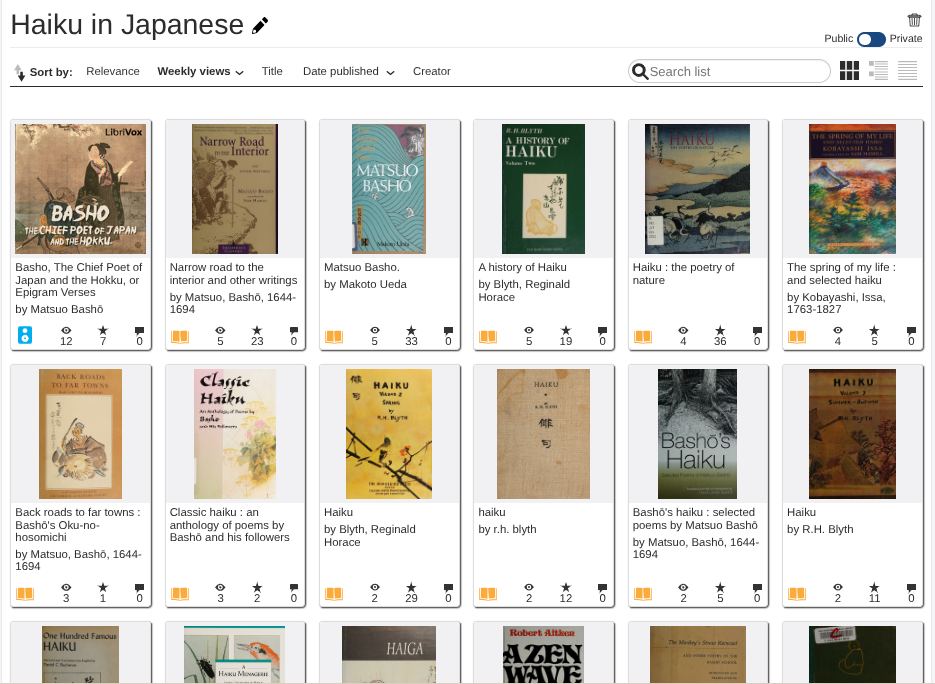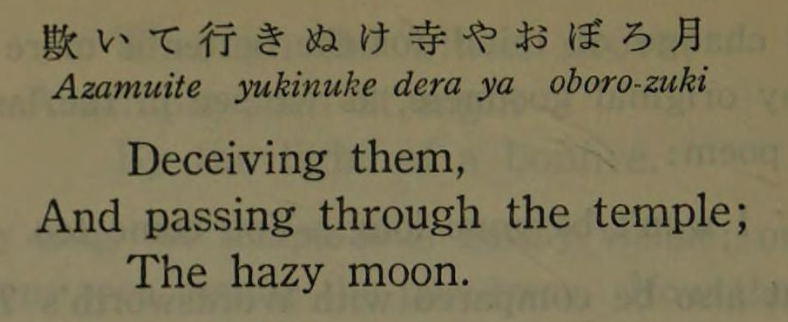I wrote before about my Internet Archive Haiku Bookshelf with haiku books (and other online haiku resources), and now I am working on a more specialized Internet Archive Bookshelf: books with the Japanese text of haiku poems, either in romaji and/or with hiragana and kanji. The way I'm building this bookshelf is by going through the first bookshelf, looking for the books with Japanese texts. So that means anything on this new bookshelf also appears on the other one. Here is the new bookshelf: Japanese Haiku Texts at the Internet Archive.

There are almost 30 items there already, and I'll just keep adding more, slowly but surely, as I check item by item from the other list. There's also one audio item: a recording of Chamberlain's Basho for which they found a Japanese reader to read the poems in Japanese. Since I am an active reader and prooflistener at LibriVox myself (my LibriVox projects), I was excited to see that!
As a single resource to focus on today, I wanted to make sure to mention the beautiful books by R. H. Blyth that I wrote about before: Blyth's Haiku at Internet Archive. The four volumes of Blyth's Haiku books — Haiku: Eastern Culture I, Haiku: Spring II, Haiku: Summer/Autumn III, and Haiku: Autumn/Winter IV — have the hiragana and kanji (but no romaji), while the History books — History of Haiku I (up to Issa) and History of Haiku II (Issa up to modern times). —- have both romaji plus the hiragana and kanji. They are all available at the Internet Archive.
Here's a sample from Haiku: Eastern Culture I: it's a poem by Basho.

It's going to be a long time before I'm able to read the kanji, but this is a famous poem, so I was able to Google the English in order to find romaji at the World Kigo Database: okiyo okiyo waga tomo ni sen neru kochoo.
And here's a sample from History of Haiku I: it's a poem by Taigi.

The hiragana and kanji are small and hard to read in the printed book, but by Googling the romaji, I can usually find the hiragana and kanji to copy and paste and then make as large as I need to with the font, as well as being able to look up the kanji at Wiktionary (more about that). So, here it is BIG:

I'm so excited to have all these great resources at the Internet Archive, plus digital tools, to carry on with my learning-Japanese-through-haiku project like this!